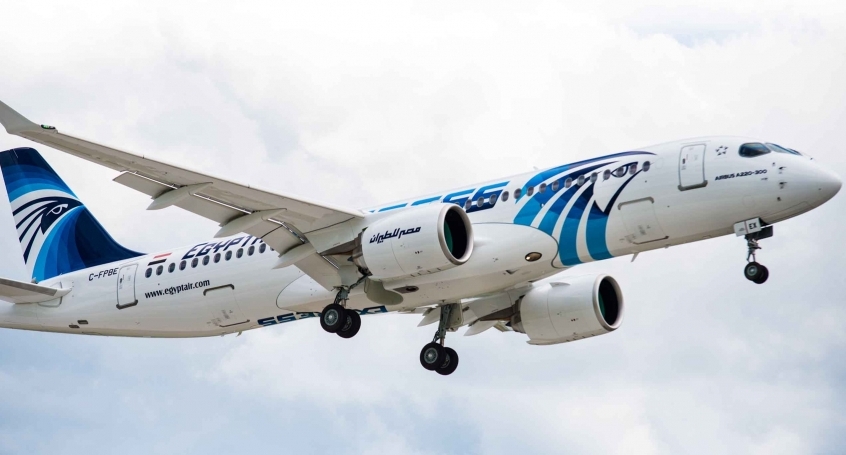EgyptAir becomes first MENA region airline to operate A220-300
gyptAir has taken delivery of its first of 12 A220-300 aircraft on order, becoming the first A220 operator based in the Middle East and North African region (MENA), and the sixth operator worldwide.

September 07, 2019: EgyptAir has taken delivery of its first of 12 A220-300 aircraft on order, becoming the first A220 operator based in the Middle East and North African region (MENA), and the sixth operator worldwide. The Cairo-based airline intends to fly the aircraft on routes to and from its main Egyptian Hub in Cairo in the coming days.
"We are proud to welcome our very first A220 aircraft and to be the first airline in the Middle East and North African region to take delivery and launch commercial operations of the A220 - the most innovative and technologically advanced aircraft in the world," said Ahmed Adel, chairman and CEO, EgyptAir Holding Company. "Airbus' A220 airliners are integral to the execution of EgyptAir business development strategy Horizon 2025 and fleet optimisation plan."
%uD83D%uDC4F A big day for our friends @egyptair as they become the first airline from the Middle East and North Africa region to operate the new #A220! Take a look at how we built this aircraft proudly sporting the airline's iconic livery. pic.twitter.com/LbJAodh8Zd
— Airbus (@Airbus) September 6, 2019
"We are delighted to welcome EgyptAir to the growing family of A220 operators and look forward to seeing their passengers enjoy the experience of travelling onboard the A220%u2018s bright, spacious and modern cabin," said Philippe Balducchi, CEO, head of country Canada, Airbus Canada Limited Partnership.
EgyptAir's brand new A220-300 is configured in a two-class cabin with 140-seats including 15 premium economy and 125 economy class seats, offering every passenger a greater level of comfort and space.
The A220 is the only aircraft purpose-built for the 100-150 seat market; it delivers unbeatable fuel efficiency and widebody passenger comfort in a single-aisle aircraft. The A220 brings together state-of-the-art aerodynamics, advanced materials and Pratt & Whitney's latest-generation PW1500G geared turbofan engines to offer at least 20 percent lower fuel burn per seat compared to previous generation aircraft. The A220 offers the performance of larger single-aisle aircraft.
EgyptAir currently operates a fleet of 15 A320neo as well as 11 A220 to be delivered in the coming years.
With an order book of over 500 aircraft at the end of August 2019, the A220 has all the credentials to win the lion's share of the 100- to 150-seat aircraft market estimated to represent at least 7,000 aircraft over the next 20 years.


